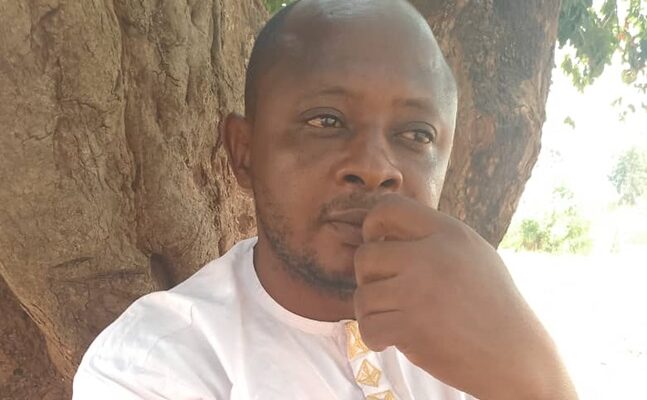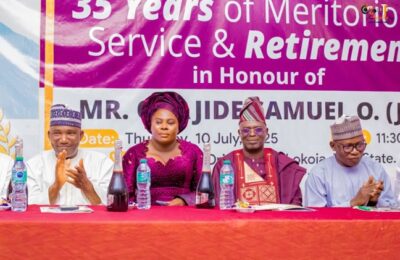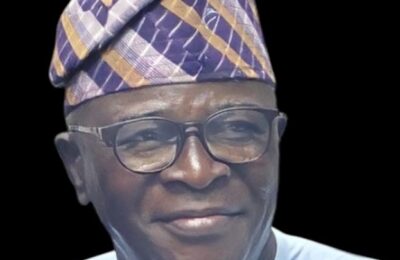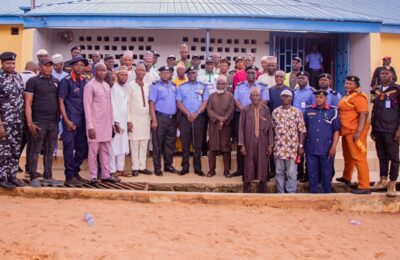Politics in Nigeria is like the River Niger in August—swollen, unpredictable, and dangerous for those who cannot swim. The waves rise high, crashing against the canoe of democracy, sometimes threatening to capsize it. The shouting voices of politicians, the wailing of the masses, and the confusion of electoral disputes fill the air like the harmattan wind, blinding the people and leaving their lips cracked with disappointment. In such a storm, can the values of Christianity, deeply rooted in love, justice, humility, and peace, provide a guiding light? Can the teachings of Jesus Christ calm this raging sea and restore sanity to a system that often resembles a market square without elders?
The Bible tells us that when Jesus and His disciples were caught in a storm on the Sea of Galilee, He stood and rebuked the wind, saying, “Peace, be still.” Immediately, the storm ceased, and there was great calm. Nigeria, like many other nations, is in desperate need of such a voice—one that can silence the tempests of corruption, tribalism, electoral violence, and selfish leadership. But who will speak that word? Who will stand in the gap, bearing the light of Christian values in the murky waters of politics?
In Nigeria, politics is often described as a “do or die” affair. The race for power is like a masquerade dance, full of deception, intimidation, and dangerous moves. Promises are made and broken like dry firewood. Elections are marred by violence, rigging, and godfatherism. Political offices become feeding bottles for the greedy, while the common man watches with hungry eyes, wondering if his vote was ever counted. In such a setting, is it possible for Christian principles to flourish? Can honesty, humility, and selfless service survive in the jungle of Nigerian politics?
The story of Daniel in the Bible offers a powerful example. He served under several kings in Babylon, yet he remained faithful to God and refused to be corrupted by the system. Even when thrown into the lion’s den, his integrity did not waver. If Daniel could stand firm in a foreign land, why can’t Nigerian politicians, many of whom profess Christianity, be examples of righteousness in leadership? Why do we see so many who go to church on Sunday but return to the corridors of corruption on Monday? It is as if their Bibles are left on the pew, forgotten until the next service.
Yet, there are glimpses of hope—leaders who dare to be different, who refuse to dance to the drumbeat of corruption. One such example is Governor Hyacinth Alia of Benue State, a Catholic priest turned politician. His journey from the pulpit to the government house is like that of a shepherd who has stepped into the wilderness to guide lost sheep back to the path of righteousness. Before politics, he was known for his healing masses and his commitment to the spiritual and material well-being of his people. Now, as governor, he carries the same mission into governance, seeking to heal a land wounded by insecurity, poverty, and bad leadership.
Governor Alia’s emergence is a rare moment in Nigerian politics. It is not often that a reverend father leaves the altar to sit on the governor’s chair. Some doubted him, saying politics would stain his white cassock, that the system would swallow him like Jonah in the belly of the fish. But he has insisted that governance, like the priesthood, is a calling to serve. His presence in Benue’s politics is a test of whether Christian values can truly withstand the fire of Nigerian leadership. Will he remain true to his priestly vows of humility and service, or will the seat of power change him? Will he be a David among Goliaths, or will he be swallowed by the same system he seeks to cleanse?

Christianity teaches love—genuine, sacrificial love. The kind that seeks the good of others before self. But Nigerian politics thrives on personal gain. The idea of servant leadership, which Jesus demonstrated by washing His disciples’ feet, is foreign to many leaders. Instead, they expect the people to bow before them, as if political office were a throne rather than a place of service. If only politicians could embrace the words of Jesus: “The greatest among you shall be your servant.” Imagine a Nigeria where leaders truly served the people, where public funds were used to build schools instead of filling private accounts abroad, where elections were won based on integrity rather than intimidation. Would we not see a nation transformed?
The Prophet Micah summed up what God requires of leaders: “To do justice, to love mercy, and to walk humbly with your God.” But justice is often a rare commodity in Nigerian politics. Court cases drag on for years, and verdicts are sometimes as unpredictable as the Nigerian weather. Those who steal billions are given a slap on the wrist, while a poor man who steals a loaf of bread is thrown into prison. This is not justice; it is the rule of the strong over the weak. Yet, true Christian leadership would demand fairness—a system where the law is like rain, falling equally on both the rich and the poor.
Tribalism is another demon that haunts Nigerian politics. Like the Tower of Babel, it has scattered the people into divisions, making unity difficult. Elections are not just about policies or competence but about ethnic and religious affiliations. “Na our pikin” has become a justification for supporting incompetence. But Christianity speaks of a kingdom where there is neither Jew nor Gentile, where all are one in Christ. If this principle were embraced, if Nigerians could see themselves first as Nigerians rather than as Hausa, Yoruba, Igbo, or Tiv, perhaps the nation would heal from the wounds of division.
Of course, some argue that politics is too dirty for Christian values to survive. They say it is like a muddy road in the rainy season—whoever walks through it must get stained. But must it be so? Must Christians abandon the political space and allow darkness to reign unchecked? Jesus said, “You are the light of the world.” Light is most effective in darkness. If politics is a dark alley, then that is exactly where Christian values are needed most.
There are examples of Christian politicians who have defied the odds, like Peter Obi, whose frugality and emphasis on accountability set him apart in a system known for waste. Though not perfect, he showed that governance can be different. The late Dora Akunyili, a woman of integrity, fought corruption in the pharmaceutical industry with a boldness that reflected godly values. Now, Governor Alia stands at a crossroads—will he join this league of leaders who held on to their integrity, or will he become another name in Nigeria’s long list of disappointments?
Corruption remains the Goliath in Nigeria’s political landscape. Like David, a leadership armed with faith, courage, and integrity can bring it down. But it requires individuals willing to stand against the tide, to resist the temptation of quick wealth, and to remember that leadership is a calling, not a business opportunity. Jesus said, “What shall it profit a man if he gains the whole world and loses his soul?” Many politicians chase power as if it were the ultimate prize, forgetting that one day they will leave it all behind. The true prize is a legacy of righteousness, one that history will remember.
What, then, is the way forward? How can Christian values be woven into the fabric of Nigerian politics? It must start with individuals—leaders who fear God, citizens who refuse to sell their votes, and a system that rewards integrity rather than mediocrity. Churches must do more than pray for politicians; they must teach biblical principles of governance and hold leaders accountable. Christian politicians must remember that they are not just representing a party but the kingdom of God.
Nigeria’s political chaos is like a storm, but storms do not last forever. If enough people rise with the spirit of Christ, speaking peace to the winds of corruption and tribalism, the tides will turn. It may take time, but as the Igbo proverb says, “The sun does not forget a village just because it rises slowly.” A new Nigeria is possible, one where leaders lead with love, justice, and humility. But it will not happen by chance. It will happen when Christian values stop being mere words and start becoming the foundation of governance. Only then will the storm be calmed, and the nation find the peace it so desperately seeks.
– Inah Boniface Ocholi (Pastor)
08152094428





